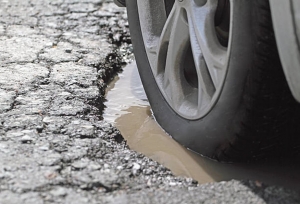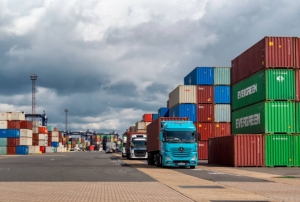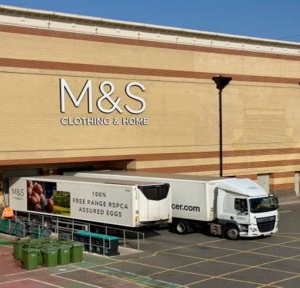Test Owner
Government Approves Key Road Upgrades to Cut Journey Times
Drivers across Wiltshire, Leeds, Essex, and Buckinghamshire are set to benefit from faster and more efficient journeys as the government approves four major road improvement projects. The upgrades will focus on key routes, including the A350 Chippenham bypass, the A647 Dawsons Corner and Stanningley bypass in Leeds, the South East Aylesbury link road, and the A127/A130 Fairglen interchange in Essex.
Freight and logistics groups have welcomed the investment, highlighting its potential to ease congestion and strengthen supply chains. The A350 Chippenham bypass, a crucial link between the South West, the Midlands, and the South East, will receive £90 million in funding. Planned improvements include dualling two sections of the road and enhancing a key roundabout, cutting journey times by up to 25%.
Future of Roads Minister Lilian Greenwood emphasised the importance of road infrastructure in supporting economic growth, stating that these projects will help people travel more easily while boosting connectivity. She noted that delayed investment has hindered economic progress, and these upgrades mark a step towards greater efficiency and mobility.
Michelle Gardner of Logistics UK stressed the significance of tackling congestion, which increases business costs due to delayed deliveries, excess fuel use, and inefficient transport operations. The Road Haulage Association (RHA) added that congestion costs the UK economy £30 billion annually, and these upgrades will play a vital role in unlocking economic potential.
New Self-Repairing Asphalt Offers Hope for UK’s Pothole Crisis
Haulage operators in the UK can expect better road conditions with the development of a groundbreaking self-repairing asphalt that could help address the country's ongoing pothole problem, which costs an estimated £143.5m annually. The innovative asphalt, created by a team of scientists from King’s College London, Swansea University, and Chile, has the remarkable ability to repair cracks autonomously, without any human intervention.
The self-healing properties of the asphalt are thanks to tiny spores, smaller than a human hair, which are embedded in the bitumen. These spores, filled with recycled oils, are activated when the road surface is compressed by passing vehicles. The pressure causes the spores to release the oils, filling and reversing the cracks in the road. Laboratory tests have shown the material can heal microcracks in less than an hour.
Potholes are a major issue in the UK, with an estimated £16.3bn needed to repair roads, according to the latest local authority survey. Dr Francisco Martin-Martinez from King’s College explained that the self-healing asphalt mimics natural processes seen in trees and animals, which heal their wounds over time. The new material is also more sustainable, using biomass waste instead of petroleum, which could reduce reliance on natural resources.
National Highways has welcomed the development, recognising its potential to improve road maintenance and reduce disruptions. The research team believes this technology could revolutionise infrastructure and sustainability worldwide.
New Return to Driving Course Offers Boost to Haulage Industry
The Road Haulage Association (RHA) has welcomed changes to the Driver Certificate of Professional Competence (CPC) Regulations, which are seen as a vital support to the haulage sector. Starting from 1 February, a new Return to Driving course will allow former HGV drivers to requalify and return to professional driving in the UK.
Under the updated rules, drivers whose CPC certification expired between 60 days and two years ago can complete a seven-hour course to regain their professional eligibility. The course offers immediate requalification, followed by a one-year National Driver CPC card, with the requirement of an additional 28 hours of training to maintain the qualification.
Brian Kenny, RHA’s training director, highlighted that the new course is ideal for drivers who have taken a career break or were hesitant to return due to lengthy classroom sessions or retaking driving tests. The course, developed in partnership with industry experts and training providers, offers greater flexibility with in-person and remote learning options, as well as interactive e-learning.
The course covers essential topics such as walk-around checks, safe loading, vulnerable road users, drivers’ hours, and tachographs, ensuring drivers remain safe, compliant, and up to date. Kenny described the initiative as a "lifeline" for the industry, helping to address skills shortages and support drivers in restarting their careers.
Lidl Opens Europe’s Largest Logistics Hub Near Paris
Lidl has unveiled its new flagship logistics hub in Ablis, located southwest of Paris. Spanning an impressive 87,000 square metres, the facility is now the largest of its kind in Europe and marks a significant milestone in the supermarket chain’s expansion strategy. The hub, which took over seven years to complete, will initially support around fifty Lidl stores across the Paris region.
The state-of-the-art distribution centre is designed with future growth in mind, as Lidl continues to expand its presence in France. Featuring 5,800 square metres of office space and fourteen loading docks, the hub can manage 9,000 incoming pallets daily, with 10,000 dispatched each week. By March, all fifteen storage and processing zones within the facility are expected to be fully operational, ensuring it is ready to meet increasing demand as Lidl opens more stores.
Sustainability is at the heart of the new hub, which recycles 92% of its waste and incorporates innovative logistics to maximise efficiency. Trucks leaving the site carry not only goods but also waste, reducing the need for empty return trips. Additionally, over 12,000 square metres of solar panels have been installed, providing a quarter of the building’s energy requirements.
The launch of this facility signals Lidl’s commitment to both growth and environmental responsibility, setting a benchmark for logistics in the retail sector.
Driver Shortages Pose Ongoing Challenges for UK Transport Sector
The UK transport and logistics industry continues to grapple with significant challenges as driver shortages strain operations nationwide. Despite efforts by the government and stakeholders to address the issue, systemic problems such as low pay, poor working conditions, and an ageing workforce persist. These issues, compounded by the aftermath of Brexit and the COVID-19 pandemic, threaten the efficiency and profitability of fleet operations across the country.
While the term "shortage" is often debated, many industry experts argue that recruitment and retention difficulties stem from unsatisfactory conditions rather than a lack of qualified drivers. Factors such as reliance on overseas labour, delays in HGV driver testing during the pandemic, and the profession’s reputation for gruelling hours and inadequate roadside facilities have deterred new entrants. Government plans to invest £100 million in improving driver facilities, including secure parking and better amenities, are in progress but have yet to make a tangible impact.
The shortage has had widespread effects on fleet managers, with increased costs, reduced reliability, and greater pressure on existing drivers. Rising insurance premiums, exacerbated by a lack of experienced drivers, add to the burden. Businesses relying on timely logistics also face disruptions, with late deliveries leading to dissatisfied customers and long-term reputational risks.
To build resilience in the sector, collaborative efforts are essential. Improving driver welfare, adopting advanced technologies, and fostering partnerships with insurers, training providers, and local councils are crucial steps. By addressing these challenges head-on, the UK transport sector can work towards a sustainable and efficient future.
ST Logistics and Lenovo Partner to Revolutionise Warehouse Operations
Singapore-based ST Logistics has partnered with Lenovo to introduce advanced automation technologies into its warehouses, leveraging a new warehouse execution system and artificial intelligence (AI) algorithms. The system streamlines the flow of goods within warehouses, automatically identifying the quickest and safest routes for item transportation to enhance order fulfilment efficiency.
Lenovo’s high-performance computing solutions, including its ThinkSystem servers, underpin the AI-powered algorithms, enabling the optimisation of storage and prioritisation of items ready for immediate dispatch. This ensures faster access to high-priority goods, improving overall warehouse productivity. Lance Ong, deputy general manager for homeland security operations at ST Logistics, praised Lenovo’s role in delivering a comprehensive solution, stating: “Their support and ecosystem drove tangible outcomes, and we know we can always count on them.”
The collaboration also focuses on workforce development, equipping employees with the skills to manage and operate the automated systems. This highlights the continued importance of human expertise alongside technological advancements, ensuring seamless integration of automation within the workforce.
This initiative aligns with the Singapore Economy 2030 vision, which emphasises innovation in trade, enterprise, and manufacturing. By creating a more efficient and sustainable supply chain, the partnership aims to strengthen Singapore’s regional competitiveness. Lenovo Singapore’s general manager, Nigel Lee, described the collaboration as a transformative step towards intelligent and sustainable supply chains, reflecting the company’s commitment to driving innovation in the logistics sector.
Call for Action to Prevent HGVs Using Town Roads as Shortcuts
Efforts are underway to discourage lorry and HGV drivers from using roads in Caversham and Reading as shortcuts to access the M4, amid rising concerns over road safety. Recent incidents, including lorries getting stuck under bridges and collisions with structures, have highlighted the risks posed by heavy vehicles in the area.
Calls have been made to encourage drivers coming from Oxfordshire to use alternative routes, such as the A34 leading to Junction 13 at Chieveley, instead of cutting through Reading. Notable accidents last year included lorries becoming wedged under the Caversham Road railway bridge and another colliding with a university building on Redlands Road.
Reading MP Matt Rodda raised the issue in a parliamentary debate on road safety, urging for better cooperation between Oxfordshire County Council and Reading Borough Council to address the problem. He criticised the lack of joint action, describing the current situation as “unacceptable,” and called for a preventative approach to road safety to reduce unnecessary injuries and fatalities.
Reading Borough Council is exploring measures to tackle through-traffic, including potential charges for vehicles, such as HGVs, that pass through the town without a destination there. Councillor John Ennis, responsible for climate strategy and transport, highlighted how through-traffic contributes to congestion and poor air quality, issues he said must be addressed urgently.
M&S Bolsters Fleet with Zero and Low Emission Vehicles
Marks & Spencer has announced the addition of 85 zero or low-emission vehicles to its logistics fleet as part of its Plan A commitment to achieve Net Zero by 2040. This investment aligns with the retailer’s goals to transition to low-carbon logistics and adopt cleaner fuels and advanced technologies. Among the new vehicles are five fully electric HGVs that will operate between the Welham Green distribution centre and 30 stores across London and the South East, replacing equivalent diesel trucks.
The battery-electric HGVs are part of the UK Government's eFREIGHT 2030 initiative, designed to decarbonise road freight by promoting the use of zero-emission heavy goods vehicles and supporting infrastructure. As a founding member of the programme, M&S will gain valuable data on the performance of electric HGVs to guide future fleet decisions, while continuing to introduce cleaner fuels and lower-emission alternatives.
In addition to electric vehicles, M&S has introduced compressed natural gas (CNG) lorries to its Clothing & Home and Food logistics operations. This includes the UK’s first 6×2 CNG trucks and 50 4×2 CNG vehicles powered by biomethane, a renewable fuel that reduces CO2 emissions by up to 85% compared to diesel engines. Once operational, these 85 vehicles will account for nearly 10% of M&S’s transport fleet.
M&S remains committed to reducing its carbon footprint through innovation and collaboration. Julian Bailey, Head of Group Transport, emphasised that adapting logistics operations is key to meeting sustainability goals while ensuring efficient delivery of products. Future of Roads Minister Lilian Greenwood praised M&S’s efforts, highlighting the government’s substantial investment in zero-emission technologies to support the transition to a greener future.
DB Schenker Introduces Remote-Controlled Forklifts in Logistics Operations
DB Schenker has unveiled remote-controlled forklifts at its contract logistics site in Kassel, Germany, marking a significant milestone in the company’s automation journey. Developed in collaboration with German start-up enabl Technologies, the forklifts are operated remotely by drivers via a cutting-edge platform, allowing for control of multiple vehicles across various locations. This innovation aims to enhance flexibility and boost operational efficiency.
As part of its broader digitalisation strategy, DB Schenker is leveraging automation to improve productivity and tackle challenges such as labour shortages and fluctuating demand. The partnership with enabl Technologies is a crucial step in modernising its logistics operations. A recently signed letter of intent between the two companies outlines plans to roll out the remote-controlled forklifts at international locations, cementing their commitment to advancing warehouse technology.
The introduction of this technology reflects DB Schenker’s dedication to staying ahead in the evolving logistics landscape. By integrating remote-controlled forklifts, the company continues to position itself as a leader in digital innovation within the sector. These forklifts eliminate the need for on-site drivers, demonstrating the effectiveness and safety of enabl’s solutions.
DB Schenker’s Vice President of Global Engineering and Innovation, Lucas Mömken, emphasised that the collaboration with enabl enhances process automation and ensures competitiveness. Enabl Technologies CEO Julian Wadephul highlighted the system’s proven reliability and its role in setting new standards for warehouse automation globally.
UK Enforces Sustainable Aviation Fuel Mandate
The UK has become the first country to enshrine a Sustainable Aviation Fuel (SAF) Mandate into law, aiming for 10% of all jet fuel to be sustainable by 2030. Announced on 1st January, the mandate requires at least 2% of jet fuel for UK departures to be sustainable by 2025, with SAF derived from sources like cooking oil and household waste. The move is part of the government’s green aviation strategy to reduce emissions.
Plans include producing 1.2 million tonnes of SAF annually by 2030, enough to fuel 3,000 flights around the globe. Aviation Minister Mike Kane described the mandate as a significant step towards making aviation greener and more sustainable. He highlighted the industry’s growing popularity and its potential to create thousands of jobs within the UK’s SAF sector.
The Jet Zero Task Force, which first met in December, will guide the mandate’s implementation and explore pathways to cleaner aviation. A revenue scheme has also been introduced to attract investment in SAF plants across the UK, ensuring the industry’s growth and innovation.
Industry leaders welcomed the mandate but emphasised the need for expanded feedstock options and cost-reduction measures. Tim Alderslade, CEO of Airlines UK, stressed that clear revenue mechanisms are essential to scale up SAF production while keeping costs manageable for airlines and consumers.















